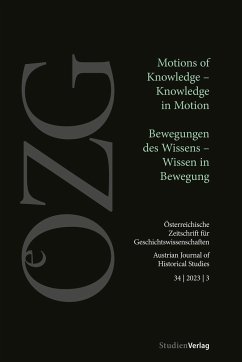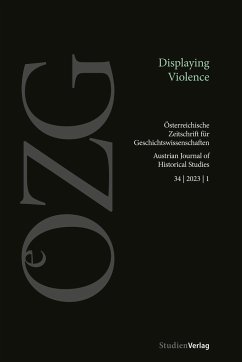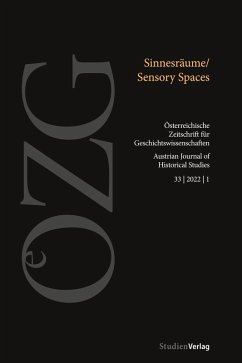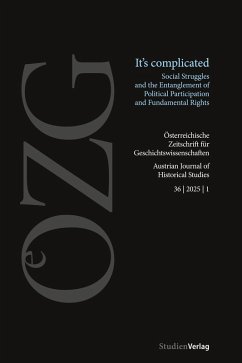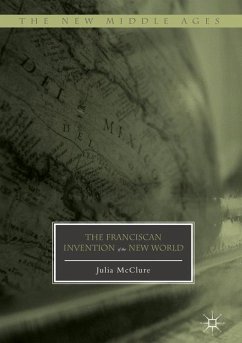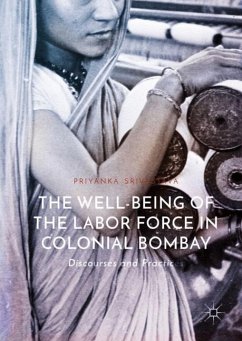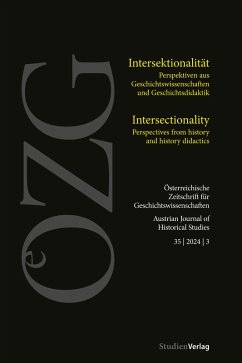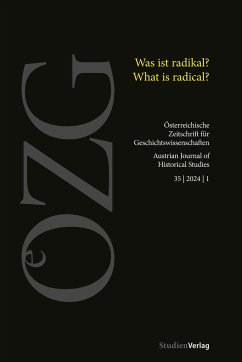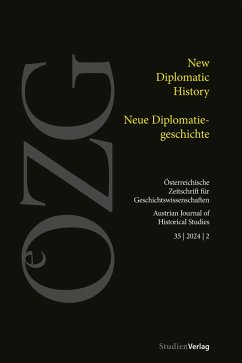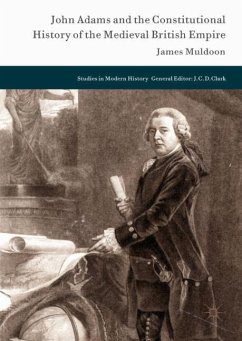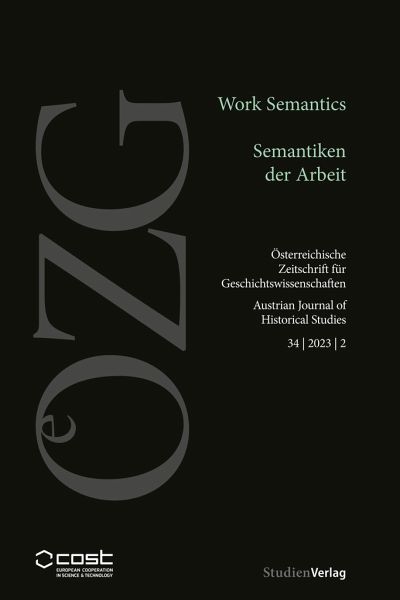
Österreichische Zeitschrift für Geschichtswissenschaften 34/2/2023
Work Semantics / Semantiken der Arbeit
Herausgegeben: Chevaleyre, Claude; Schiel, Juliane
Versandkostenfrei!
Sofort lieferbar
37,00 €
inkl. MwSt.

PAYBACK Punkte
0 °P sammeln!
In welchem Verhältnis steht die Sprache zum Sozialen? Wie erfassen Historiker_innen die sozialen Dimensionen hinter den semantischen Ausdrucksweisen historischer Dokumente, und welche Analysesprache finden sie dafür, ohne anderen Gesellschaften die eigene Denkordnung überzustülpen? Während die historische Semantik in den Sprachwissenschaften und den Area Studies schon lang ein etabliertes Teilfach ist, wird sie in den Geschichtswissenschaften vor allem im Zuge der jüngeren Diskussion um den Nutzen digitaler Analysetools diskutiert. Ein grundsätzliches Verständnis der Spezifika, der Vie...
In welchem Verhältnis steht die Sprache zum Sozialen? Wie erfassen Historiker_innen die sozialen Dimensionen hinter den semantischen Ausdrucksweisen historischer Dokumente, und welche Analysesprache finden sie dafür, ohne anderen Gesellschaften die eigene Denkordnung überzustülpen? Während die historische Semantik in den Sprachwissenschaften und den Area Studies schon lang ein etabliertes Teilfach ist, wird sie in den Geschichtswissenschaften vor allem im Zuge der jüngeren Diskussion um den Nutzen digitaler Analysetools diskutiert. Ein grundsätzliches Verständnis der Spezifika, der Vielfalt und des Potentials historisch-semantischen Arbeitens für die Geschichtswissenschaften fehlt jedoch weitgehend. Der vorliegende Band möchte zu einer Klärung beitragen, indem er ein programmatisches Vademecum mit empirischen Fallstudien zum Thema Arbeit und Zwang und einem die Herangehensweise reflektierenden Interview kombiniert. Das Heft ist Ergebnis von Diskussionen der Arbeitsgruppe "Grammars of Coercion" der COST Action CA18205 "Worlds of Related Coercions in Work".How does language relate to the social? How can historians decipher the social meaning of semantic expressions in historical documents, and how can the analytical categories and concepts used by historians reflect the social taxonomies of the historical sources without imposing the historians' own mindset on societies of the past? While historical semantics have a long tradition as a subfield of linguistics and in area studies, historians have only recently started to think about historical semantics as an approach to history - mainly in relation to discussions about the use of digital analytical tools. A common understanding of the specifics, the diversity and the potential of a historical semantics approach to history, however, is still missing. This special issue aims to contribute to a clarification. It contains a programmatic vade mecum with methodological examples, six empirical case studies applying the historical semantics approach to the study of labour and power relations in premodern and modern societies, and an interview reflecting on the methodology. The volume is the result of the "Grammars of Coercion" working group of the COST Action CA18205 "Worlds of Related Coercions in Work".



